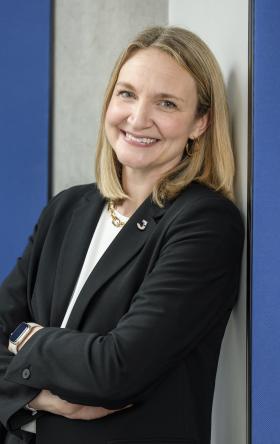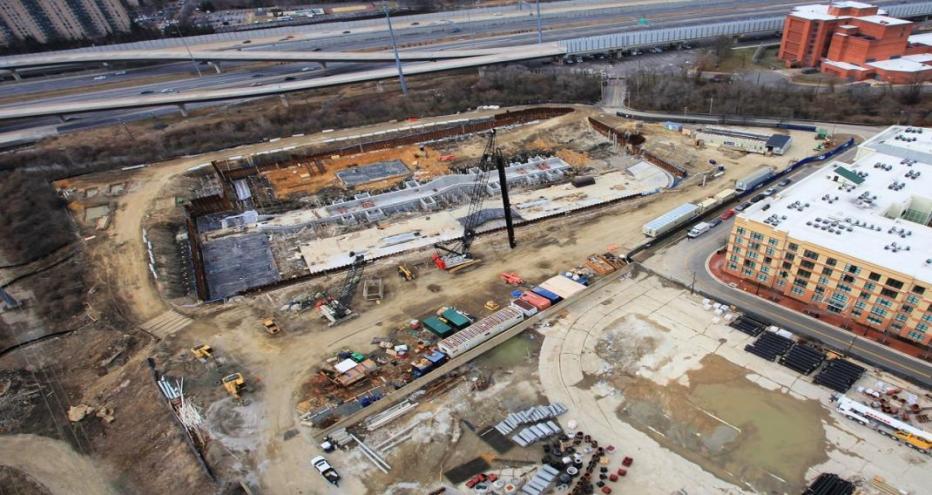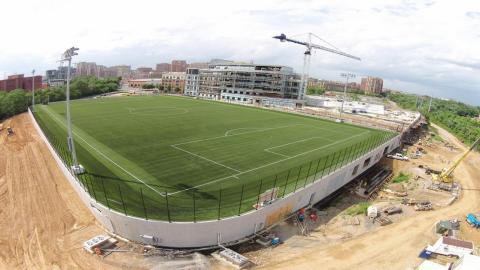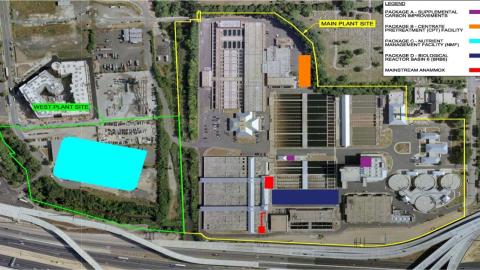




As a purpose-led company, we know we have a pivotal role to play in addressing the climate emergency. We consider this not only good business, but our duty to channel our technology-enabled expertise and capabilities toward benefitting people and the planet.



We work in partnership, delivering some of the most challenging, diverse and innovative projects and programs globally across multiple sectors. We integrate complex interfaces across planning, procurement and delivery to help unlock better social, environmental and economic outcomes from mega and giga projects.



For more than 30 years, Jacobs has been responsible for planning and implementing Lead and Copper Rule-related strategies which protect millions of people in the U.S. and Canada. Our work includes enhanced water quality monitoring strategies, sampling plan development, harvested pipe-scale analysis, lead service line inventories and replacement plans, corrosion control studies and the incorporation of equity and environmental justice considerations into compliance programs.



As our clients navigate the digital transformation and growing cyber risks, we have positioned ourselves at the forefront of this growth, adding digital capabilities, products and tools to serve a growing set of customers.



Sit down with our visionary team of thinkers, dreamers and doers to see what a day in the life is like.



A curated selection of some of the top-listened to and trending podcast episodes from our popular If/When podcast series, which has over 7M downloads to date.



Together with our visionary partner, PA Consulting, we're establishing our position in high end advisory services, creating a springboard to expand in high value offerings beyond the core.


At Jacobs, we're challenging today to reinvent tomorrow by solving the world's most critical problems for thriving cities, resilient environments, mission-critical outcomes, operational advancement, scientific discovery and cutting-edge manufacturing, turning abstract ideas into realities that transform the world for good. With approximately $16 billion in annual revenue and a talent force of more than 60,000, Jacobs provides a full spectrum of professional services including consulting, technical, scientific and project delivery for the government and private sector.



Jacobs. A world where you can.



As climate change threatens water security around the world, more communities are turning to water reuse as a resilient water supply solution and embracing the OneWater principle that all water has value. Jacobs has been supporting clients with water reuse programs for decades, beginning with the first applications of advanced wastewater treatment technologies in the 1960s. We provide our clients with a full range of services, from water reuse feasibility studies to design, construction and operations.



The only certainty about the future is uncertainty. Resilience is an attribute of a smarter planet, and requires planning and adapting ahead of potential threats. We help our clients survive, recover, adapt and thrive.



Jacobs is working to help clients across the United States secure federal funding for projects that make our cities and communities more connected and sustainable. Working hand-in-hand with clients from coast to coast and everywhere in between, Jacobs develops bold, innovative solutions to address the nation’s toughest challenges.



Now more than ever, we appreciate the hard work, sacrifice and dedication of the medical profession in ensuring the health and safety of our communities.



Together, we are stronger. Together, we can transform the future.



We’ve provided design-build services to the water sector for over 25 years and delivered more than 150 projects. We offer fully integrated design-build and design-build-operate capabilities to tackle the most complex water challenges and work in close collaboration with our clients.



Stories that capture our partnerships and innovative impact for a more connected, sustainable world



As land becomes more valuable, reuse of abandoned or derelict land—including former landfills—is becoming more widespread. Landfills provide unique reclamation opportunities, as long as special monitoring and design considerations are established and followed, and as long as the public is convinced that reuse will not pose any threats to health and safety.
Adaptive reuse and redevelopment challenges include significant investments, technical complexities and regulatory requirements. Meeting these challenges requires both vision and commitment by corporate owners and public agencies. The first step in the process is creating a vision for the project and the site. The master planning process is the basis for establishing the site’s potential and developing the reuse vision. The planning process must be based on a strong understanding of the existing conditions and what can be reasonably accomplished. The public must be educated on the assessment processes and issues that will impact site reuse and design decisions.
Landfill closure and planned reuse considerations include settlement, the need for methane control and collection, site drainage, long-term maintenance requirements, wetland replication/remediation, slope stabilization, site monitoring, risk assessment for public use of the site and, last but not least, project costs and potential funding.
But what if we showed you how Jacobs and a public utility in the Commonwealth of Virginia came together to demonstrate how redeveloping a brownfield in an older city or suburban neighborhood can allow a community to remove blight and environmental contamination, create a catalyst for neighborhood revitalization, lessen development pressure at the urban edge and leverage existing infrastructure?
cubic yards of contaminated soil permanently removed from the site
gallon storage facility, topped with a public athletic field
“AlexRenew had a vision for repurposing an historic landfill site for expansion of their wastewater treatment facility and Jacobs helped make their vision a reality.”
Marty Reif
Jacobs Technology Fellow and Global Waste Facility Contaminant Practice Leader


Alexandria Renew Enterprises (AlexRenew) operates one of the most advanced wastewater resource recovery facilities in the U.S., located on a fully developed and constrained 33-acre site (Main Plant site). Located in an urban setting, AlexRenew found itself in a unique situation needing approximately five acres to upgrade their facility to meet more stringent nutrient regulatory mandates but with limited room on their current property to build the needed facilities.
The public utility studied several expansion options and determined that five additional acres would provide an adequate amount of land for the necessary expansion to address the new regulations. The Main Plant site is part of a larger area that was historically used as a landfill by the City of Alexandria in the 1960s and 1970s. The historical landfill extends well beyond the current Main Plant site property boundary. Given the facility location between the Capital Beltway, historic cemetery and a City recreation and office building, there were limited opportunities for contiguous expansion.
The only available property with enough space to accommodate the expansion was located immediately to the west of the Main Plant site. AlexRenew acquired the property for the implementation of their 18-million-gallon Nutrient Management Facility (NMF). The NMF itself is a large, rectangular, flat top concrete structure approximately 240-by-430 feet.
The West Plant site is also part of the historic landfill area. To manage the long-term environmental liabilities associated with the landfilled material and waste decomposition gases, AlexRenew opted to enroll the property into Virginia’s Voluntary Remediation Program (VRP). The purpose of the VRP is to encourage environmental cleanups that otherwise might not take place. The program is a streamlined mechanism for site owners or operators to voluntarily address contamination, with concurrence from the Virginia Department of Environmental Quality (DEQ).
The approach for mitigating the potential human health risk associated with construction of the NMF at the West Plant site was accomplished through the implementation of a site-specific health and safety plan. Engineering and institutional controls were developed within the areas around the NMF since landfill waste would remain beneath the area after construction. These controls included clean cover, hardscape, fencing and clean utility corridors. Several land use controls were also imposed on the property, including:
Many considerations to improve community quality of life were incorporated into the project, including a multi-purpose lit athletic field, built on top of the NMF. By building the athletic field, the NMF project restored previously inaccessible land, and added a recreational amenity to benefit the citizens of the City of Alexandria.
Jacobs led the master planning and design, provided engineering services during construction and helped incorporate sustainability throughout AlexRenew's entire nitrogen upgrade program. The project earned the first Envision Platinum certification from the Institute for Sustainable Infrastructure in the Washington DC/Virginia metro region. The Envision rating system provides a holistic framework for evaluating and rating the environmental, community and economic benefits of large infrastructure projects that incorporate sustainability throughout the project life cycle.